Requesting World Vets Veterinary Assistance
World Vets receives requests for veterinary assistance year round from locations all over the world. While we are not able to help everyone, we welcome inquiries and the potential to establish new partnerships for the benefit of animal health and welfare. One of the main ways we are able to assist animals worldwide is by sending veterinary teams to provide free veterinary services. In this way we operate veterinary field service projects that are either classified as small animal, equine or livestock and animal husbandry. Learn more about requesting veterinary assistance here
If you volunteer with or represent an animal welfare organization and are interested in welcoming a World Vets veterinary team to your location, we ask that you first investigate the following things before requesting assistance;
- Are foreign veterinarians legally permitted to provide veterinary services in your location as a volunteer? For instance, are there any local laws banning veterinarians from other countries in performing surgery or practicing veterinary medicine.
- If foreign veterinarians are allowed to volunteer their services in your location, are there any requirements for them to provide veterinary services? (i.e. credentials, specific documentation or permissions)
If you are a traveller or tourist, the best way to obtain potential World Vets assistance for a location is to provide our information to a local animal welfare organization operating in the area. Have them reach out to us directly to inquire about potential veterinary assistance. As a standard policy, we do not seek out project partners or work where we are not wanted. As such, in order for us to consider assisting anywhere, we require that a request be generated from within the location in question from a locally based stakeholder.
Special notes
- Requests for veterinary assistance are only considered for locations outside of North America
- Requests for assistance that involve the recruitment of individual veterinarians and/or volunteers for placements with other organizations are not considered
- World Vets does not plan projects in areas that are at war or have a high threat of terrorist activity. For this reason, we are not able to consider project requests for areas that have major safety concerns and/or travel advisories per the U.S State Department. Specific regions of the world that we are unable to consider for assistance at this time (due to security concerns) include the Middle East, Central Asia and various parts of Africa.




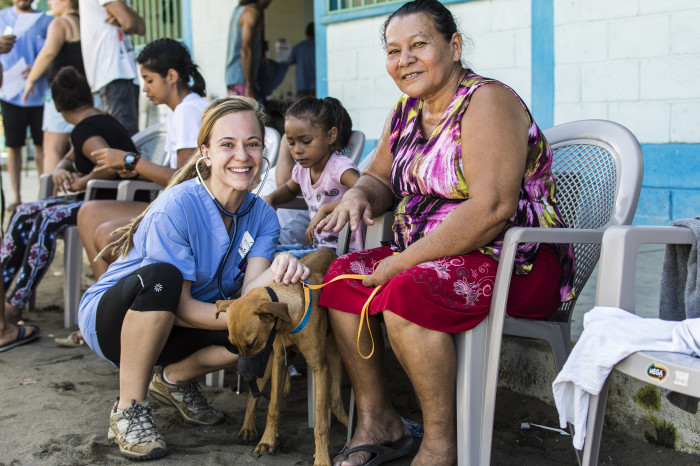
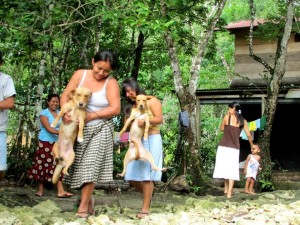 A World Vets team has just returned after a great adventure to the Atlantic Coast of Guatemala. Following 7 hours of travel, in a van and boat ride from the capital, they arrived in the Livingston/Rio Dulce region. During their visit they provided free veterinary services, a luxury for local cats and dogs, as local services for animals are hard to come by in such an isolated area. Many communities are only accessible by boat making veterinary care a great challenge.
A World Vets team has just returned after a great adventure to the Atlantic Coast of Guatemala. Following 7 hours of travel, in a van and boat ride from the capital, they arrived in the Livingston/Rio Dulce region. During their visit they provided free veterinary services, a luxury for local cats and dogs, as local services for animals are hard to come by in such an isolated area. Many communities are only accessible by boat making veterinary care a great challenge.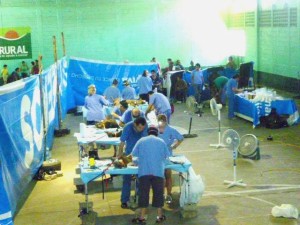 performed as well as an additional 200 plus health consultations and treatments provided to local animals. We also saw patients at the dock of our accommodations during the evening along the river. In these activities, we were joined by local volunteers and veterinary students from Universidad de San Carlos de Guatemala.
performed as well as an additional 200 plus health consultations and treatments provided to local animals. We also saw patients at the dock of our accommodations during the evening along the river. In these activities, we were joined by local volunteers and veterinary students from Universidad de San Carlos de Guatemala.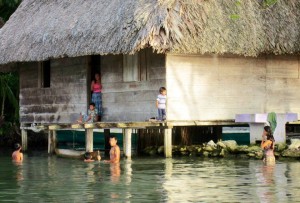 local Centro de Salud and municipality of Livingston for all their support in helping make this campaign possible. And finally we would like to thank local businesses and the community of Livingston for their warm welcome and hospitality.
local Centro de Salud and municipality of Livingston for all their support in helping make this campaign possible. And finally we would like to thank local businesses and the community of Livingston for their warm welcome and hospitality.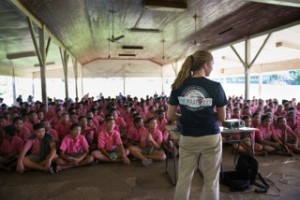
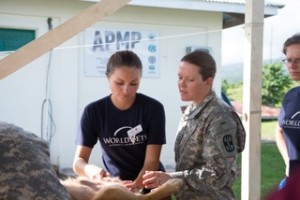
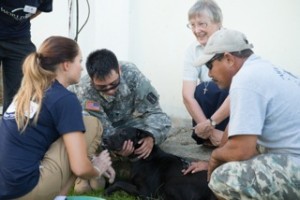
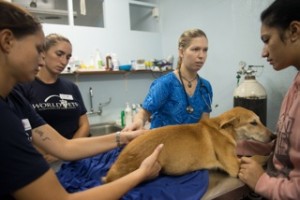
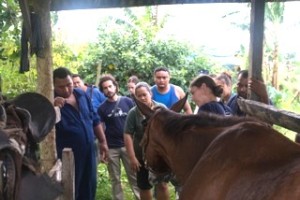
 Pacific Partnership is an annual U.S. Pacific Fleet humanitarian and civic assistance mission designed to work by, with and through host and partner nations, non-government organizations and international agencies to build partnerships and a collective ability to respond to natural disasters. Serves: South Pacific & South East Asia
Pacific Partnership is an annual U.S. Pacific Fleet humanitarian and civic assistance mission designed to work by, with and through host and partner nations, non-government organizations and international agencies to build partnerships and a collective ability to respond to natural disasters. Serves: South Pacific & South East Asia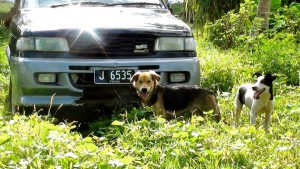 opportunities for veterinary professionals on board this mission and in turn contribute veterinary manpower and skills to accomplish the mission`s objectives. We are now accepting volunteer applications, until January 13th, 2013, from veterinarians, veterinary technicians as well as veterinary students to be considered for a position on our veterinary team.
opportunities for veterinary professionals on board this mission and in turn contribute veterinary manpower and skills to accomplish the mission`s objectives. We are now accepting volunteer applications, until January 13th, 2013, from veterinarians, veterinary technicians as well as veterinary students to be considered for a position on our veterinary team. 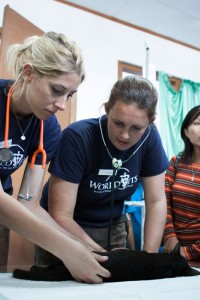 World Vets has a veterinary team working in Indonesia as part of the
World Vets has a veterinary team working in Indonesia as part of the 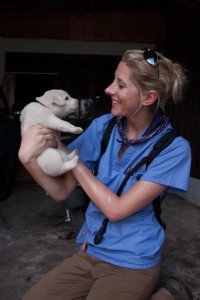 ians and given presentations, commonly known as SMEE’s (subject matter expert exchanges), at the university to Indonesian students and veterinary professionals.
ians and given presentations, commonly known as SMEE’s (subject matter expert exchanges), at the university to Indonesian students and veterinary professionals.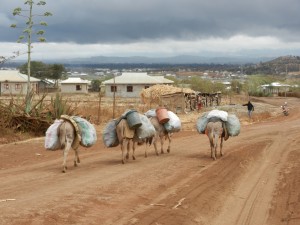 Later this month World Vets will have a team in Tanzania. The objective of their visit will be to provide veterinary care for the working donkey population. Donkeys are primarily utilized for hauling anything from bricks to wood to produce and/or water. As a result of their use as laborers, they often carry many wounds and/or lacerations that become infected if left untreated.
Later this month World Vets will have a team in Tanzania. The objective of their visit will be to provide veterinary care for the working donkey population. Donkeys are primarily utilized for hauling anything from bricks to wood to produce and/or water. As a result of their use as laborers, they often carry many wounds and/or lacerations that become infected if left untreated.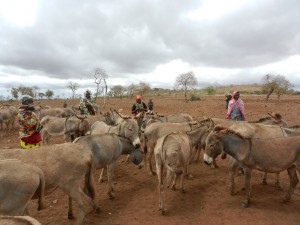 s.
s.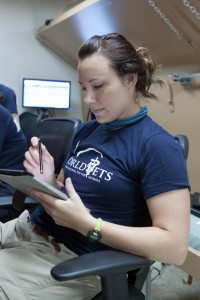 World Vets team for the first rotation of the Pacific Partnership 2012 mission is now on board the USNS MERCY. They have quickly gotten to work preparing their presentations and lectures that will be given in the four host nations to be visited; Indonesia, Philippines, Vietnam and Cambodia. These presentations are commonly referred to as SMEE’s – Subject Matter Expert Exchanges. As such, our team will not only be providing direct veterinary aid on this mission, but will also be educating on various topics and issues relating to veterinary medicine.
World Vets team for the first rotation of the Pacific Partnership 2012 mission is now on board the USNS MERCY. They have quickly gotten to work preparing their presentations and lectures that will be given in the four host nations to be visited; Indonesia, Philippines, Vietnam and Cambodia. These presentations are commonly referred to as SMEE’s – Subject Matter Expert Exchanges. As such, our team will not only be providing direct veterinary aid on this mission, but will also be educating on various topics and issues relating to veterinary medicine.